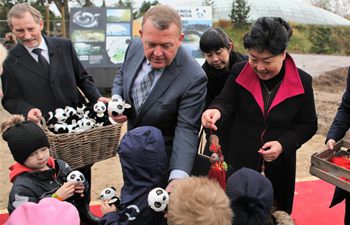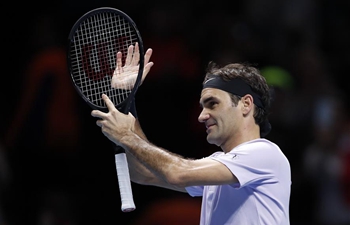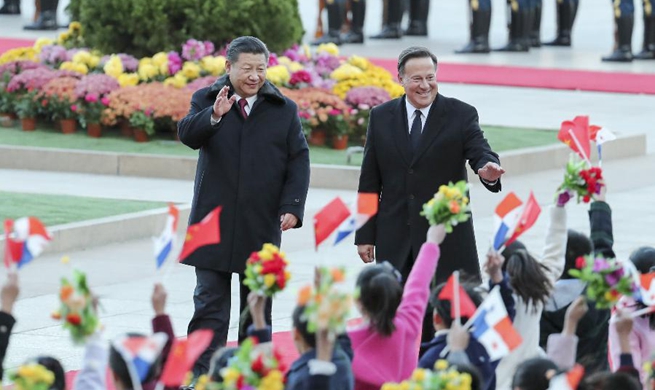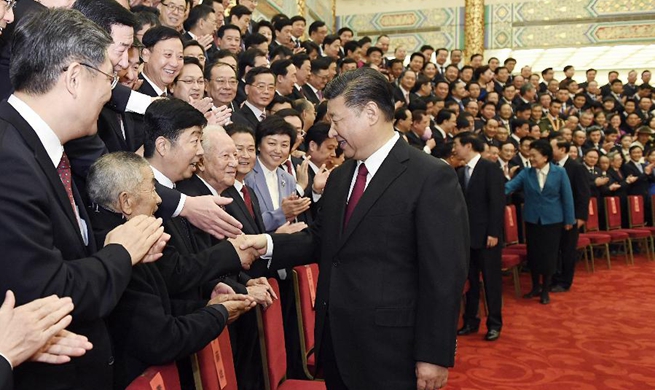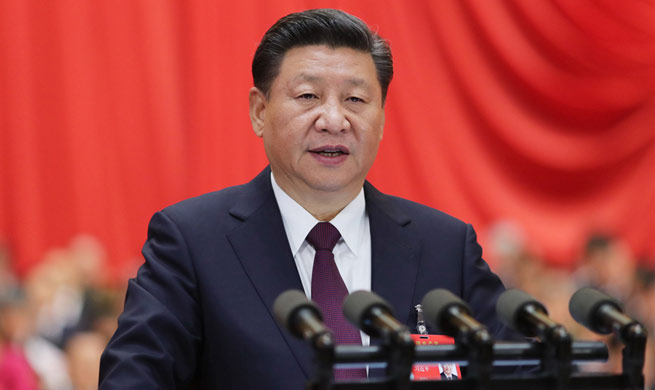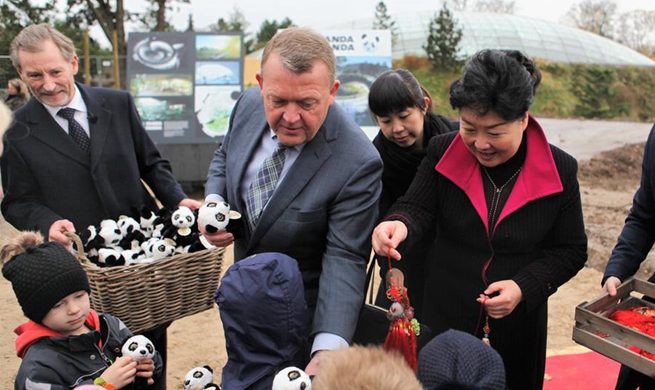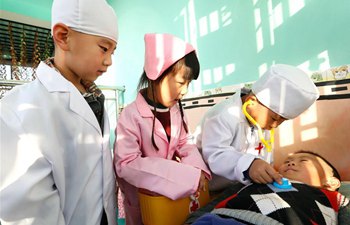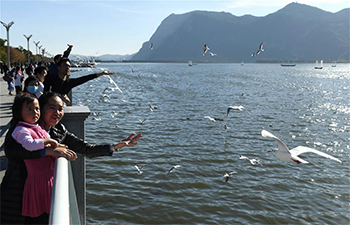by Alessandra Cardone
MILAN, Nov. 17 (Xinhua) -- The recent opening of a new high-tech medical school campus boosted the bid for Italy's economic capital to headquarter the much-coveted European Union (EU) Medicines Agency.
With a total investment of about 100 million euros (117.7 U.S. dollars), the new Humanitas Medical University campus was in fact officially inaugurated at the outskirts of Milan earlier this week, in combination with the launching of the academic year.
Stretching over 25,000 square meters, alongside a research and teaching hospital, the campus now encompasses an advanced Simulation Lab that extends on a 2,000-meter-square area.
The medical school is strongly internationally oriented, teaching some 1,200 students from 31 different countries. Foreign students represent an average 44 percent of the total, according to the university authorities.
As the new campus was inaugurated on Tuesday, Italian President Sergio Mattarella took the chance to remark that being selected to host the European Medicines Agency (EMA) would be crucial for Milan's ambition to become a center of excellence for research, medicine, and life sciences.
The announcement from the EMA -- which is due to leave London after Britain's decision to leave the EU -- is expected on Nov. 20, and 19 EU cities are vying for it.
"(Winning the race) would represent a further step forward for this city's leading role in Europe," Mattarella said.
Overall, figures and orientation of the new medical campus appeared quite commensurate with this ambition. Established in 2014, Humanitas Medical University and Research Center counted on 70 full professors, some 200 visiting colleagues -- including Medicine Nobel Prize winners Rolf Zinkernagel, Jules Hoffmann, and Erwin Neher, plus 300 researchers from four continents.
A new residence with 240 beds for students and researchers would be opened in summer 2018.
According to scientific director Alberto Mantovani, the university benefits much from being located in a fertile ground for research such as Lombardy, one of the wealthiest regions in Italy, and among the fifth richest in Europe.
"This applies in terms of investment in research as well: Lombardy invests almost 3 percent of its gross domestic product (GDP), against Italy's average of 1.2 percent," Mantovani told Xinhua.
The renowned immunologist also explained a "unique synergy" between private and public would make Lombardy's healthcare and medical research system a well functioning model.
"In addition, it is interesting to look at data coming from the British government, which launched an investigation about science," Mantovani said. "It turned out that Italian scientists are the most productive in the world."
The Medical School is private, which means tuition fees -- stretching from 10,000 euros to 20,000 euros per year for European students, according to four income categories -- are much higher than average for Italy's mainly public education system.
Yet, Humanitas is titled as public Institute for Research and Health Care (IRCCS), which means it is a medical institution of relevant national interest, and committed to Italy's welfare.
As such, the hospital on the campus treats some 4,000 patients a day, and 50,000 per month, and "80 percent of them assisted through the public health system," Humanitas chairman Gianfelice Rocca said.
Research projects, and exchanges of students, researchers, and doctors were set up over the years with medical institutes and universities around the world, including in the U.S., UK, Sweden, Russia, Poland, India, and China.
Considering China more specifically, a medical training program was established between Humanitas and the Renmin Hospital of Wuhan University in central China's Hubei province.
Ties with Chinese colleagues were intense, according to Mantovani. "I go there quite regularly: for instance, I went twice last month, and twice last year... I also gave a keynote lecture at the Chinese Society of Immunology," he said.
The physician said he was impressed by the progress made in China, and by Chinese young people.
"They flocked around me after my lecture, eager to talk and ask questions," Mantovani added.
"Last but not least, we have had the privilege of having outstanding Chinese postdoctors in our Lab here." (1 euro = 1.18 U.S. dollars)








